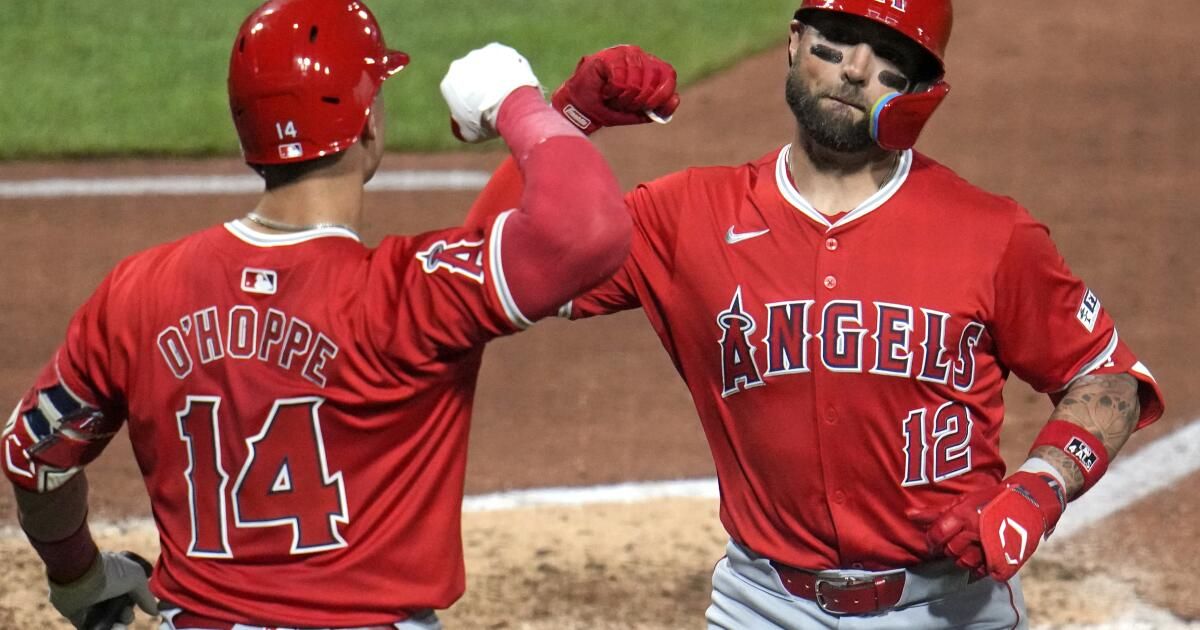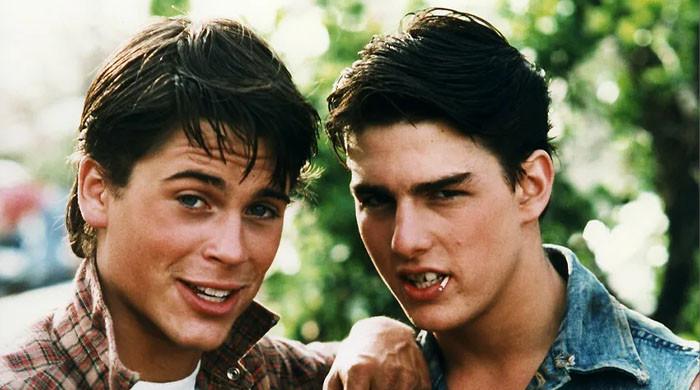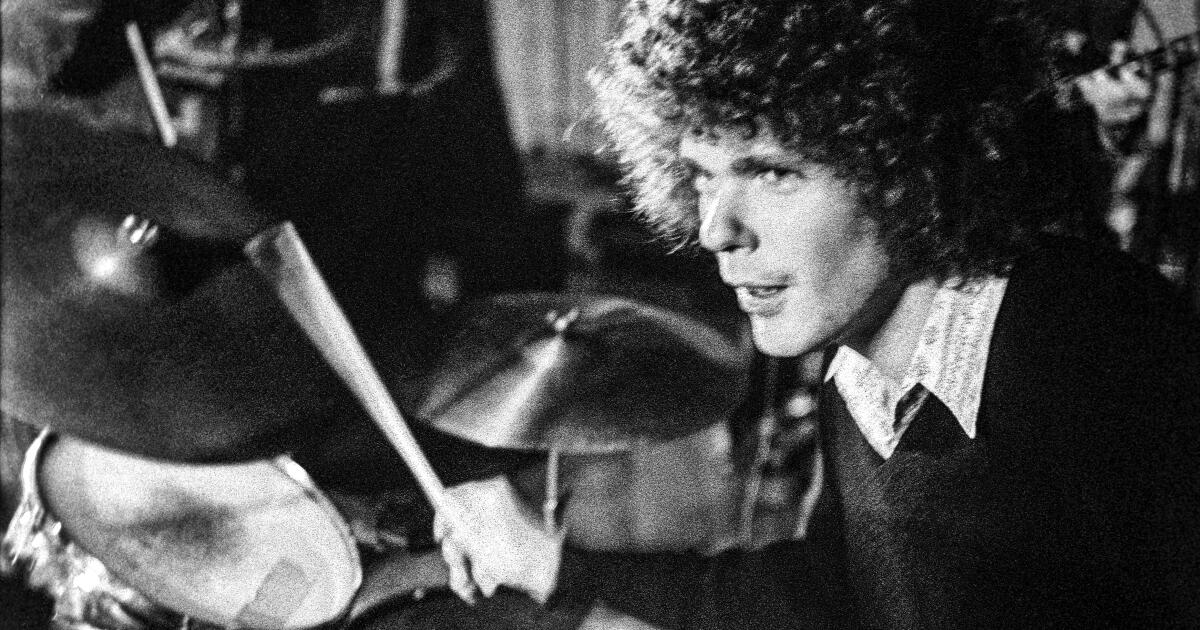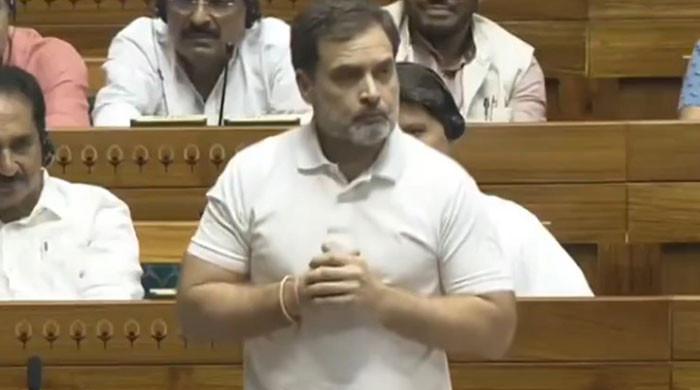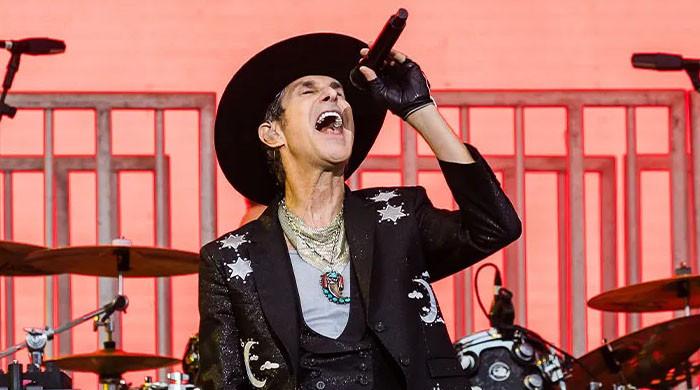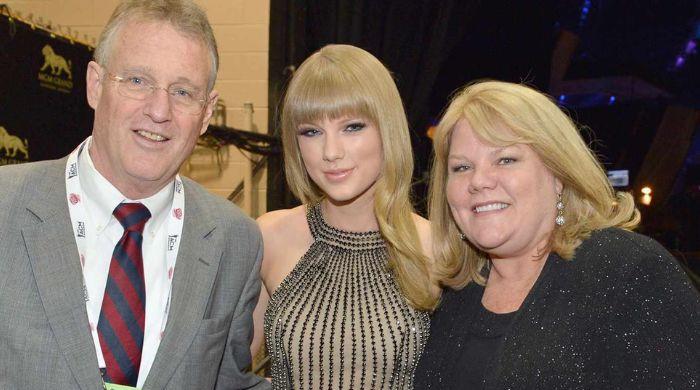Major League Baseball promotes its star players, such as Shohei Ohtani and Mookie Betts, Mike Trout and Fernando Tatis Jr. The league has never launched a marketing campaign around Kevin Pillar.
“I never deserved it,” Pillar said Tuesday at Angel Stadium.
The league relies on rosters populated by players like Pillar, the Angels outfielder who played at West Hills Chaminade and Cal State Dominguez Hills. Pillar has been good enough to play 12 years in the majors, but he has never made an All-Star team.
On Tuesday, however, the league promoted Pillar in a curious spot.
In a filing with the U.S. Bankruptcy Court, the league took aim at Bally Sports' parent company for depriving fans of “memorable, exciting and historic games and performances.”
MLB mentioned names, including seven-time All-Star pitcher Chris Sale of the Atlanta Braves, five-time All-Star infielder José Ramírez of the Cleveland Guardians and electric young shortstop Elly De La Cruz of the Cincinnati Reds.
And then MLB cited Pillar, and in particular last week's game in which he hit two home runs and drove in six runs.
Bally owns the local television rights to 12 MLB teams, including the Angels. The bankruptcy process has been going on for 14 months and Bally plans to ask the court for permission next month to emerge from bankruptcy and start its corporate life again.
However, the viability of the new Bally's could depend on revenue from deals with three major distributors: DirecTV, Charter and Comcast.
Bally has reached deals with the first two, but has so far failed with Comcast.
As a result, Comcast removed Bally's channels from its cable systems on May 1, depriving some fans of star appearances by Pillar and other players, according to the league, but also putting all Bally's channels at “a risk.” substantially greater than closing completely. .”
A court hearing is scheduled for Wednesday, at which Bally will be able to respond to the league's concerns.
Pillar recalled the seven years he played for the Toronto Blue Jays, where there are no similar issues over local television rights because a cable company owns the team and broadcasts the games on its cable systems.
“If I played well, I became a very popular player,” Pillar said. “There were never any problems with promotion there, because the games were televised across Canada.”
MLB has made no secret of its desire to collect broadcast rights from as many teams as possible and then package those rights in a way that eliminates blackouts that are often granted as an incentive to local cable companies.
Live sports remain the main reason fans don't cancel their cable or satellite subscriptions in favor of streaming, so those companies won't easily give up those rights, and individual teams won't easily give up the guaranteed millions of those. agreements.
“I think it's sad for the sport when there are people who can't see their teams,” Pillar said.
“I just feel like baseball is in a very good place, talent-wise. All markets seem to have really good players. There are a lot of superstars in this game, a lot of young superstars, a lot of young players coming in who are going to be superstars.
“They have done a good job of making the games faster and more entertaining. “So, to me, it's very sad that we still have some of those problems, where fans can't see their favorite players or teams.”

